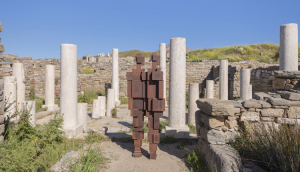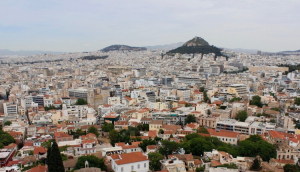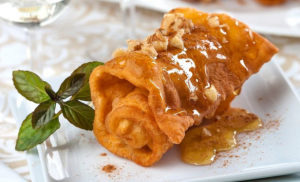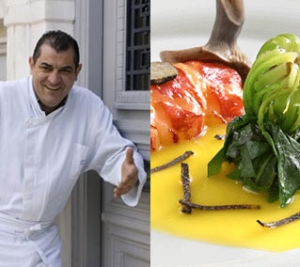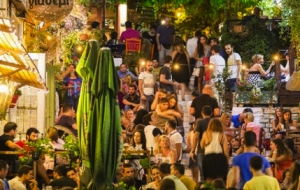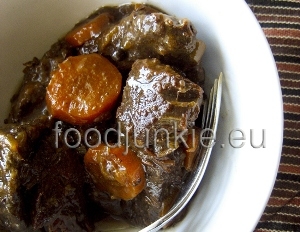When the evenings start to warm up and stretch out every year in Athens, it’s the signal for the city’s legendary nightlife scene to spread its wings and fly down to the glitter strip known as the Athens Riviera. Whether you’re in the market for cocktails on the beach, a romantic dinner by the sea, or a flirty night out dancing under the stars, here are some quintessential Athens Riviera experiences.
Sundowners on the Athens Riviera
No night out on the Athens Riviera is complete without a sunset cocktail by the sea. With its parquet floors, high ceilings, and potted palms,
Ark on Glyfada’s Asteras Beach has a country club charm (minus the steep membership fees). If in doubt about what to order, go for one of their cocktails with a Greek twist such as the Mai Tai with kumquat from Corfu and bergamot from the Peloponnese, or the margarita made with smoked salt and bee pollen.

Photo Credit: Ark Glyfada
For equally smashing sunsets all year round, head to the next venue along the Glyfada coast,
Balux House Project where you’ll find a Miami beach party groove that spills over from the glass-fronted clubhouse onto the sand, with DJ sets and regular theme parties. Next door, its seasonal sister venue, Balux Pool Seaside, has a more chilled, barefoot appeal. You can sprawl on bean bags on the lawn or inside the thatched, tiki-style bar. After sunset, they light lanterns along the shore.
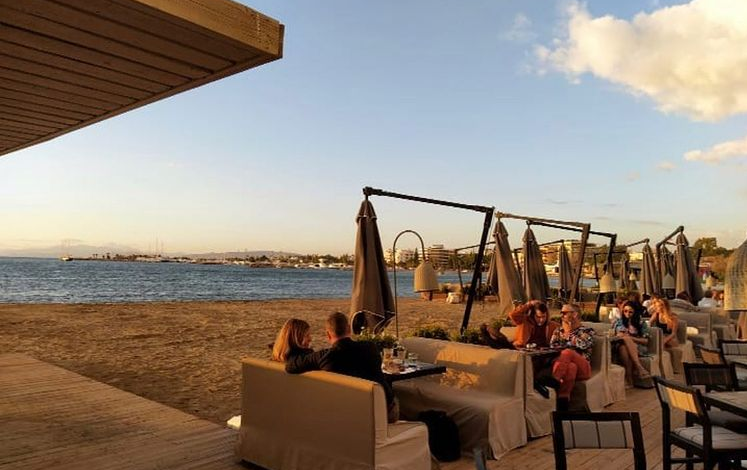
Photo Credit: Balux Cafe
Seaside dining in Vouliagmeni
Seagulls wheeling against a setting sun. Wicker lanterns swaying to subtle bouzouki music. Occasional sea spray on your toes.
Taverna 37 at the Four Seasons Astir Palace nails most people’s fantasy of seaside dining in Greece. Set apart from the main resort on a stretch of boardwalk just inches from the water, this contemporary taverna is perfect for a serene dinner date. The menu is refreshingly unshowy, given the location. There’s nothing you won’t find at your average neighborhood taverna; what sets this place apart are the impeccable ingredients, smiling service, and sensational setting.

Photo Credit: @bokbokeh
It may not be exactly by the sea, but the swoony setting of
Nerõ, on the shore of Vouliagmeni Lake ranks sky high on the romance-o-meter. Savor sophisticated seafood (like red mullet tartare with caviar or roasted scallops with feta cream) on the smart teak deck that flanks this spectacular, mineral-rich lake. The water glows like liquid gold after dark, illuminated by the lit-up limestone cliffs behind it. From spring to autumn, you might also catch a live jazz or classical music performance to enhance your evening.
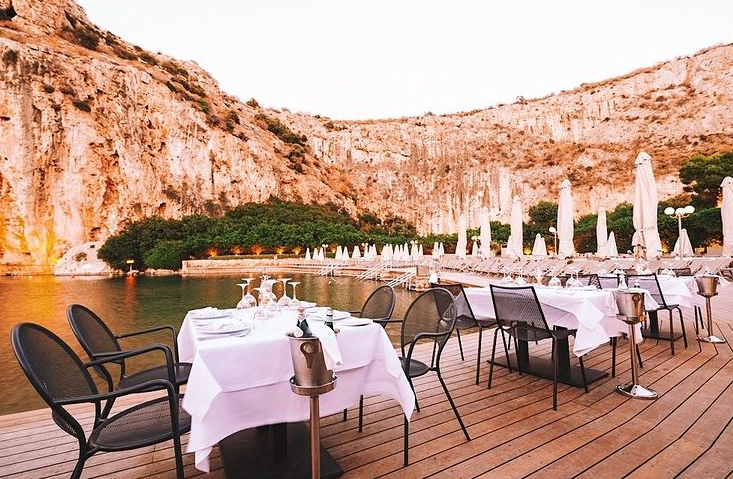
Photo Credit: Nero Vouliagmeni Lake
Bar-hopping in Glyfada
If Vouliagmeni is the place for romantic waterfront dining, Glyfada is Riviera’s late-night playground. There’s no sea view. You go for the entertaining optics of the image-conscious locals gathering nightly to see and be seen on mood-lit pavements and in leafy courtyards. At times, it feels like one big film set. Especially on fashionable Kiprou Street, which runs parallel to the main shopping strip of Metaxa Street.
Ease into your evening at
Su Casa, a stylish haunt on Nymfeon Square that’s hip but still homey. Go around 8 pm: a mellow window before most Greeks head out. Once a dilapidated house with overgrown scrub swallowing the footpath, it’s now one of Glyfada’s most atmospheric spots. It can be tough deciding where to sit. Outside on the street or garden patio, framed by fig trees and candlelight? It’s the kind of place where lovers and locals meet to catch up on each other’s news or round off a day’s shopping, and the music is accordingly chilled. There are pages and pages of cocktails, mocktails, and premium spirits, ranging from the summery applesecco spritz to margarita pesto with black pepper. If eating is on the agenda, migrate to the restaurant and try the excellent spaghetti with crab leg.

Photo Credit: Su Casa
Party on the beach in Varkiza
In fact, if beach parties are more your bag, head down to
Yabanaki Beach where the post-sunset scene has taken off. There’s a whole swag of affordable seaside dining options—from burgers to Italian, sushi, or Greek - and pop-up Latin dance parties all summer long. Yabanaki is open from May to October and entry to the resort is free after 7 pm, so take your swimmers. For many Greeks, this is the best time of day to hit the water.

Photo Credit: Varkiza Resort
To read this article in full and discover more places in the Athens Riviera, please visit:
thisisathens.org
Whether you've just arrived in town – or have been here for years – Athens always has new secrets to share!
This is Athens is the official guide to this captivating city of ancient energies and booming urban culture. Compiled by a team of specialist local writers, This is Athens brings you an authentic and intimate portrait of a living Athens beyond the guidebooks – along with daily curated listings of all the best events and great weekend inspiration all-year round. From must-know neighbourhoods and emerging art hubs, to gourmet hotspots, cool shopping and the buzziest bars, This is Athens will help you to get the most out of living in Athens!


